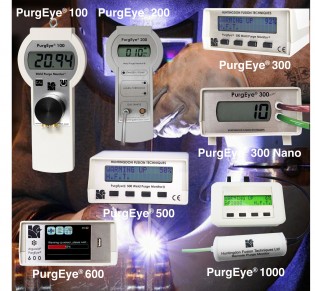
 Discussing the invention of the first Weld Purge Monitor® by HFT® in 1975 up to the current date, Dr Mike Fletcher of Delta Consultants has laid out very clearly how the "State of the Art" has changed over the 40 year period, in his latest White Paper, WP-55 Weld Purge Monitor Technology.
Discussing the invention of the first Weld Purge Monitor® by HFT® in 1975 up to the current date, Dr Mike Fletcher of Delta Consultants has laid out very clearly how the "State of the Art" has changed over the 40 year period, in his latest White Paper, WP-55 Weld Purge Monitor Technology.
How incredibly, some welders would have to hold a match to the purge exhaust to see whether it was time to start welding and how 1,000 ppm was good enough for most reactive metal welding, right up to today's standard where users are expecting a purge level as low as 10 ppm even for stainless steel welding.
It will be interesting to speculate how much things will change in the next 40 years? What will be the demands for measurement and how will it be carried out?
Click here for more White Papers on HFT® website
Huntingdon Fusion Techniques - White Papers
Click here to read WP-55
Huntingdon Fusion Techniques - WP 55